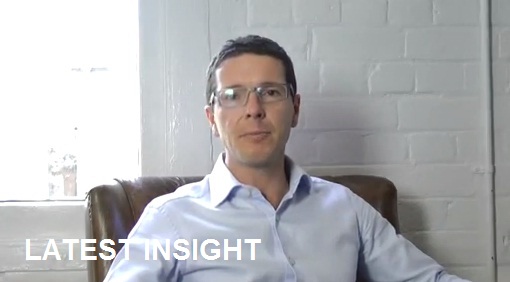Latest Insight 18/9/2012
Roger Montgomery is the Founder and Chairman of Montgomery Investment Management. Roger has over three decades of experience in funds management and related activities, including equities analysis, equity and derivatives strategy, trading and stockbroking. Prior to establishing Montgomery, Roger held positions at Ord Minnett Jardine Fleming, BT (Australia) Limited and Merrill Lynch.
He is also author of best-selling investment guide-book for the stock market, Value.able – how to value the best stocks and buy them for less than they are worth.
Roger appears regularly on television and radio, and in the press, including ABC radio and TV, The Australian and Ausbiz. View upcoming media appearances.
This post was contributed by a representative of Montgomery Investment Management Pty Limited (AFSL No. 354564). The principal purpose of this post is to provide factual information and not provide financial product advice. Additionally, the information provided is not intended to provide any recommendation or opinion about any financial product. Any commentary and statements of opinion however may contain general advice only that is prepared without taking into account your personal objectives, financial circumstances or needs. Because of this, before acting on any of the information provided, you should always consider its appropriateness in light of your personal objectives, financial circumstances and needs and should consider seeking independent advice from a financial advisor if necessary before making any decisions. This post specifically excludes personal advice.


While I am all for staying largely in cash at various stages of the cycle, in practice I don’t see a shift to this style of investing. Firstly, value investing is not all that popular, and if it becomes popular, then we are all in trouble. There is also the aspect that moving to cash amounts to trying to time the market, which is too risky for a fund manager. Any period where there is significant underperformance against the indexes means clients pulling their funds out, and therefore less in fees. Further, for a large fund, it would take along time for them to liquidate their positions without significantly moving prices, particularly in the smaller companies that Roger may invest in.
Think of 1999 when the technology bubble was occurring, if as a fund manager you were in the safety of cash as everything was too expensive, then you would be doing so with very few customers left. Also, most investors want some excitement. If they are told that their funds have been in cash, then this will not be exciting enough for some. Remember, for a high portion of people in the stock market, doing what is rational is not all that common, and I see it remaining that way. It is the very reason why the efficient market hypothesis does not hold.
Roger, i have to completely agree with you about some flaws in the way the industry is set up. I believe a fund managers job is to ensure that their clients funds are being used in what ever way is best suited to protecting and maximising the potential returns. If that means that an element or all of their funds are invested in cash than that is what the fund manager should do.
As you say, mandating that fund managers should be invested 90-100% is troublesome as their is probably very unlikely to be that many good opportunities around meaning that they have to invest in companies they wouldn’t particularly want to as it is the next best option. This to me seems to go completely against what i would want my fund manager to be doing.
I would prefer them not invest my money rather than invest it in a company they don’t even think is a particularly good option. It seems to go against what people want when they invest in such a fund.